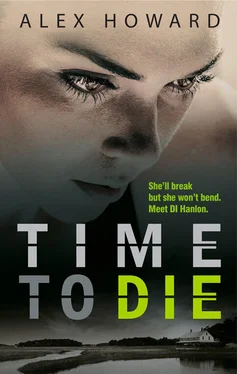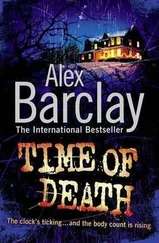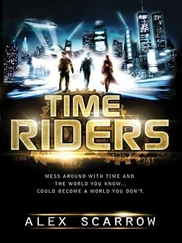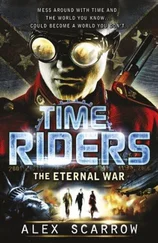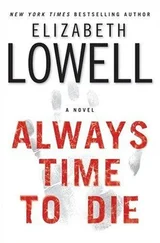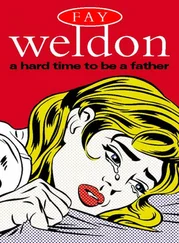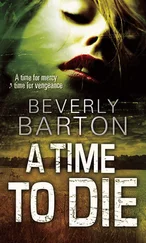Alex Howard - Time to Die
Здесь есть возможность читать онлайн «Alex Howard - Time to Die» весь текст электронной книги совершенно бесплатно (целиком полную версию без сокращений). В некоторых случаях можно слушать аудио, скачать через торрент в формате fb2 и присутствует краткое содержание. Жанр: Триллер, на английском языке. Описание произведения, (предисловие) а так же отзывы посетителей доступны на портале библиотеки ЛибКат.
- Название:Time to Die
- Автор:
- Жанр:
- Год:неизвестен
- ISBN:нет данных
- Рейтинг книги:3 / 5. Голосов: 1
-
Избранное:Добавить в избранное
- Отзывы:
-
Ваша оценка:
- 60
- 1
- 2
- 3
- 4
- 5
Time to Die: краткое содержание, описание и аннотация
Предлагаем к чтению аннотацию, описание, краткое содержание или предисловие (зависит от того, что написал сам автор книги «Time to Die»). Если вы не нашли необходимую информацию о книге — напишите в комментариях, мы постараемся отыскать её.
Time to Die — читать онлайн бесплатно полную книгу (весь текст) целиком
Ниже представлен текст книги, разбитый по страницам. Система сохранения места последней прочитанной страницы, позволяет с удобством читать онлайн бесплатно книгу «Time to Die», без необходимости каждый раз заново искать на чём Вы остановились. Поставьте закладку, и сможете в любой момент перейти на страницу, на которой закончили чтение.
Интервал:
Закладка:
Five minutes and one train later Hanlon walked out on to the platform, gym bag in hand. Enver felt a surge of delight at having guessed correctly. He saw the whiteness of her face, emphasized by her sombre clothes, as she glanced up at the electronic arrivals board with its orange lights spelling out destinations and times. She looked neither left nor right, just waited with her back to the wall of the platform, seemingly lost in thought. He felt the rolling warmth of the stale air from the tunnel gather speed around him, the breeze from the tunnel growing stronger as the train came closer, and the sudden rumbling noise getting louder and louder until the tube train burst out of the tunnel with a rattling crescendo of sound to pull into the station, and they both boarded. She was half the length of the train away from him.
The Underground train was old and it rattled its way up the Northern Line, its worn-out brakes squealing as they rounded corners or stopped with a screech at stations: Bank and Moorgate in the City and Old Street. Then came Angel, one of the stops for Islington. Enver was right in his assumption she wouldn’t be getting off there. Enver got out at each stop and moved compartments until he was in the adjacent one to Hanlon. He was beginning to feel the thrill of the hunt. Through the interconnecting door between the carriages he could see her dark hair obscuring her face as she sat hunched in her seat. The question now occupying him was where would she get off?
He had a gut feeling she would make her move at King’s Cross or Camden. Both were large and busy, both would offer the anonymity that he suspected Hanlon needed. He felt that Hanlon had to live in the city. He couldn’t imagine her getting on an overground train and commuting to the countryside in Herts or Essex. Neither could he visualize her in some outlying suburb like, say, Pinner or Ongar. It would be absurd to think of her getting on the Metropolitan line to Metroland, as Sir John Betjeman had called it, places like Harrow on the Hill, Northwick Park, Little Chalfont or Chesham. Hanlon would not want to live somewhere friendly where she would have to talk to people. Her natural haunt would be large and impersonal but probably expensive. She would not be able to put up with noisy neighbours, and money, if nothing else, buys thicker walls. It insulates you.
There was a certain amount of wishful thinking too in his choice of possible exits for Hanlon. He didn’t want to get out with her at some desolate station where just the two of them would be left together staring at each other on an otherwise deserted platform, High Barnet, for example, this train’s terminus. If that happens, thought Enver, I’m not getting off. I’ll stay on the train. Corrigan could hardly be surprised if this harebrained idea of his failed.
He still hadn’t realized that Corrigan wanted Hanlon to see him, wanted her to know that his eyes were on her. Enver wasn’t the medium; he was the message.
King’s Cross came and went, as did Camden, then Kentish Town. She stayed seated. Enver studied the advertising posters on the wall as the train pulled away. So she’s not going to see the Alabama Three at the Forum tonight, he thought. There’s a surprise. Please God, not Tufnell Park, thought Enver. Hardly anyone ever got off there at night in his experience. As the train pulled out of Tufnell Park he saw Hanlon stand up. Archway, then, Enver was sure must be the one. It was the next stop. He stood up too and moved as far down his carriage away from Hanlon as he possibly could. To his relief, a group of about ten large drunken Australians stood up too, shielding him from view.
The train stopped, the doors slid open and they left the train, the noisy Australians a good-natured, shouting, human shield. Through their bodies he could see Hanlon heading for the exit.
Archway has a single very steep escalator and Hanlon was standing on the right as it moved up, about fifteen people away from Enver. Even if she turned round she wouldn’t see him.
He followed her out into the street. Archway commands a good view of London and he could see the city spreading out beneath him. There, marooned like an island in a river, by the main arterial road down into London, the bottom of the A1, was the large bulk of what used to be a huge pub that he remembered being used by Irish builders that now seemed to have become a café. Just up the way was the semi-industrial conurbation of the Whittington Hospital, its name a reminder of where Dick and his cat had turned again, a jumble of ugly disparate buildings. Northwards, uphill, against the darkening sky, you could see the Gothic, Victorian bridge that spanned the deep cut of the road at the base of Highgate. The locals called it the suicide bridge for obvious reasons. It was a popular way to go. Handier than Dignitas, thought Enver, a lot closer than Switzerland.
Hanlon was making her way to the underpass and Enver took the surface route, running across the busy main road, climbing the railings in the central reservation, and hurrying over to the other side. From there he could see her slim, dark-clad figure emerge from the pedestrian tunnel and walk eastwards towards North Holloway. Enver was really beginning to notice how unfit he had become. Tonight was the first time he’d walked any distance in a while and he was feeling it acutely. He still had an out-of-date mental image of himself as being in terrific shape, if a little overweight. But just like a once handsome man who’s lost his looks yet stubbornly clings on to the dream that women still find him attractive despite the evidence in the mirror, so Enver — now an enthusiastic user of escalators, lifts, cars and sofas, a man whose idea of heaven was the travelator at an airport, that wonderful moving pavement, so soft and springy underfoot — had refused to come to terms with the fact that times had moved on. He himself hadn’t moved faster than a walk for years. Running across the Archway Road had been a nightmare, almost in the true sense of the word. Like in a dream he’d run as fast as he could, yet seemed to be going nowhere. He’d misjudged totally how quickly he could move; he’d only just managed to break into a speedy waddle. Cars had been forced to brake to avoid hitting him. Horns had sounded angrily. The waist-high railings had proved embarrassingly hard to get over.
Hanlon on foot moved speedily and lightly. Enver trudged after her through what had become the endless streets of Holloway, like an Escher drawing. His legs ached, his lungs laboured. She turned a corner, the sergeant following, grimly determined, in her footsteps. The sky was a rich purple-blue, it was now almost night, and he turned into the new street that the corner revealed and Hanlon was gone.
He stood, hands on his hips, gazing hopelessly down the empty road, waiting for his heart to slow down. Where the hell was she? An unfriendly voice behind him asked, ‘Looking for someone, Sergeant?’
At five to six Kathy’s Lufthansa flight had landed at Heathrow’s Terminal Three and she’d been fast-tracked by a customs officer and a waiting police officer and taken through a maze of back, employees only, corridors until she cleared airside. There, at Arrivals, she was met by a tearful Annette and a sympathetic WPC. The woman was a family liaison officer who explained as they moved quickly through the airport what they were doing to find Peter. From there she was driven in an unmarked police car to Highgate police station in North London, close to where she lived. Here she was escorted through the tall security gates at the back of the building to an office, where a team of three police officers were waiting. She was briefed on what they knew about his disappearance and what steps they were taking.
Annette had already provided them with information on Peter’s diabetes and they asked about his insulin, how much he would have had on him when he was taken. She didn’t know, probably about a week’s worth. The police exchanged significant glances. If he hadn’t been found within a week, he almost certainly wouldn’t be found alive anyway, insulin or no insulin.
Читать дальшеИнтервал:
Закладка:
Похожие книги на «Time to Die»
Представляем Вашему вниманию похожие книги на «Time to Die» списком для выбора. Мы отобрали схожую по названию и смыслу литературу в надежде предоставить читателям больше вариантов отыскать новые, интересные, ещё непрочитанные произведения.
Обсуждение, отзывы о книге «Time to Die» и просто собственные мнения читателей. Оставьте ваши комментарии, напишите, что Вы думаете о произведении, его смысле или главных героях. Укажите что конкретно понравилось, а что нет, и почему Вы так считаете.
